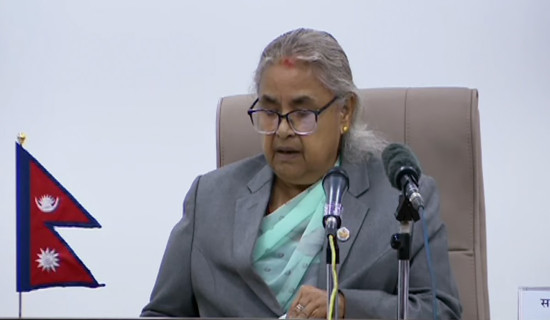- Wednesday, 8 October 2025
Value Of Nishkam Karma
In Sanskrit, Nishkam means ‘action without motive’. It is selfless service. Work without desire is the motif of this principle. Nishkam karma is practicing selfless action in everyday life. It is a central theme in the Bhagavad Gita. An important philosophical concept in Karma yoga, it means to act unselfishly, or without personal gain in mind. In fact, it is a fundamental concept in Hindu philosophy. It focuses on doing something for others and at the same time without expecting any gains in return from them.
This selfless approach to action is rooted in the ancient Indian texts. One of the key principles is detachment from outcomes. All selfless actions bring rewards and recognition. For example, nature offers umpteen fruits to the world. All flora and fauna are naturally performing actions without expectations. In return, they contribute to the world in different forms. The flowers and fruits that they offer symbolise selfless action in the universe. People enjoy them. Honeybees produce nectar for mankind without any expectation in return.
The Bhagavad-Gita emphasises the performance of duties in life without any desire for fruits and without attachment, aversion and other selfish emotion. It involves activism – action is better than inaction. Life depends upon action. Lord Krishna teaches that performing one's duties without attachment to the results is the essence of Nishkama karma. Nishkama karma involves mastering the senses through mindfulness and offering one's actions to the divine as a sacred Yajna.
Thus, it becomes altruistic service. The attitude of the person will decide the Karma whether selfish or selfless. Self-reflection, self-intentions, self-awareness prepare one for doing Nishkam karma. It mandates that volunteer work and daily activities like meditation or exercise without attachment to specific results. The more one is attached the more one becomes selfish. He looks into material gains all the while. Such actions bring down man and his position.
Man should regard Nishkam karma as the purpose for which he is given life. In Chapter II, Arjun basically hands over the steering wheel of his mind to the all-powerful Lord Krishna. This predominantly holds the forceful moral that, “But whoever controls the senses with the mind, O Arjuna! and without attachment, engages the organs of action in the path of work, he is superior."
Voluntary work, selfless service, trust and giving away are the predominant practices. A man feels happy when he gives away something to others which will come to him in the form of rewards. He who gives will be the happiest man in the world than he who accepts from others. A karma Yogi develops a pure mind and intellect.
He is never affected by such good practices. He remains free from the shackles of birth and death since he performs all actions without any selfishness. The emphasis is more on detachment rather than attachment. The more one gets detached the more one gets closer to the realisation of God. It is non-attachment to all personal actions in life. True happiness lies in serving others. That is Nishkam Karma.









-original-thumb.jpg)







